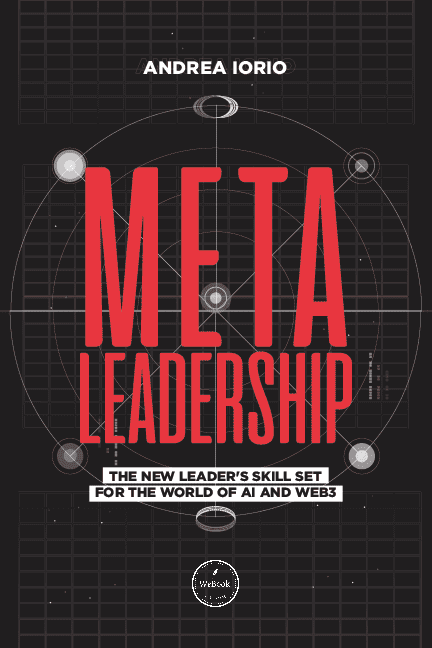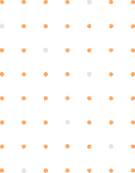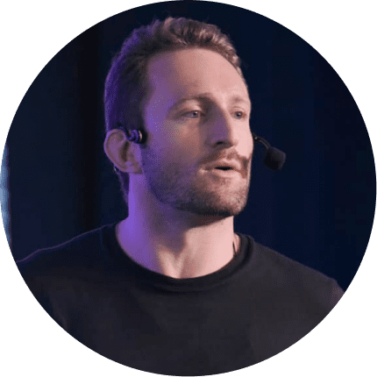I recently had the opportunity to speak at an event in Porto Alegre for the EO (Entrepreneurs Organization) Chapter, a group of entrepreneurs dedicated to sharing knowledge, fostering networking, and organizing events. My presentation focused on Leadership in the Digital Age, and during the Q&A session, which is always insightful at EO events, I was caught off guard by the following question: "Andrea, what do you think about the impact of Artificial Intelligence on education?" I hesitated and reflected before responding: should I speak my mind or provide a more politically correct answer? Well, I chose to be brutally honest in my reply.
"Given that the field of education has changed very little in the last decades, if not centuries, I welcome artificial intelligence to bring about a renewal and demonstrate that true learning does not come from the knowledge we have accumulated (where we currently get lost in the face of Artificial Intelligence, such as Chat GPT!), but rather from our ability to think critically based on knowledge. To ask questions and not just provide answers, and so on." It would have been easier to reinforce the common belief that Chat GPT is here to divert our children from learning, not make them think more. However, the truth is that it will only happen if we make it happen.
To better understand the impact of AI on education and what we should do about it, let's hear a statement from Sal Khan, the founder of Khan Academy and one of the world's leading education experts. Listen in the video below, and don't forget to turn on YouTube subtitles.
“For those who have been paying attention in the last months, you've probably seen headlines like this, particularly in the field of education: there is a common sense that students will use Chat GPT and other forms of AI tools to do their homework and not learn, and that AI will completely destroy the education sector. However, today, I am here not only to argue ways to mitigate all of this (if we set the right rules, if we do the right things). But I believe that we are close to the moment when we will use AI for perhaps the greatest positive transformation education has ever seen. And the way we will do this is by giving every student on the planet an artificial intelligence tutor, and we will give every teacher an artificial intelligence assistant."
In 1984, researcher Benjamin Bloom conducted a study on education, famously known as the "2 sigma problem," revealing the incredible potential of individualized teaching in education.
Bloom's research unveiled a fascinating discovery: when students receive individual tutoring, their performance can reach a level two times above the average. In simpler terms, this can transform an average student into an exceptional one and elevate a below-average student to an above-average level. This remarkable improvement is represented by a distribution curve that diverges from the traditional bell curve.
However, Bloom raised a crucial question: how can we scale personalized instruction economically? This question has been the focus of educational innovation for years, and today we stand on the threshold of an exciting discovery, thanks to AI.
Let's examine the pioneering work done at the Khan Academy, a leading online learning platform founded by Sal Khan himself - whom, for those unaware, I had the chance to interview at a Bradesco Family Forum convention where I was the master of ceremonies. Their AI-powered tutoring system, known as Khanmigo, represents a significant step towards personalized and democratized education.
Imagine a traditional exercise on the Khan Academy, but with an additional companion - a friendly bot on the right side of the screen. This bot is not just a tool that provides answers; it stimulates genuine learning. When a student makes a mistake, the bot doesn't provide the correct answer. Instead, it initiates a conversation, encouraging the student to think and explain their reasoning.
Surprisingly, this AI tutor has an extraordinary ability to identify misconceptions in the student's thought process. It skillfully guides the student toward a deeper understanding of the subject, even in challenging areas such as mathematics. It detects errors, requests explanations, and provides targeted guidance, akin to an exceptional human tutor.
The significance of this advancement cannot be underestimated. Through Khanmigo and similar innovations, we have the potential to revolutionize education, empowering students with personalized support and guidance on a previously unimaginable scale.
The same applies to us, doesn't it? Sometimes at work, having a mentor within the company helps us become better professionals. I have had great mentors who have helped me immensely, and they often do so (most of the time) for free.
Certainly, providing a tutor for each student in the world is somewhat of a challenge. I agree with the 2 sigma experiment, and it doesn't surprise at all the fact that a tutor can significantly aid in learning. The problem? Its cost and the difficulty of achieving scalability, i.e., one for each student. Or perhaps I should say: it used to be a problem. Thanks to artificial intelligence, this scenario is about to change.
Imagine a personal tutor that never gets tired, has access to massive amounts of data, and is free for everyone. In 1966, Stanford University philosophy professor Patrick Suppes predicted just that: he stated that one day, computer technology would evolve to the point where "millions of school-age children" would have access to a personal tutor. He envisioned conditions akin to young Prince Alexander the Great being tutored by Aristotle.
Suppes, the Stanford philosophy professor, was a pioneer in a field called "computer-assisted instruction." He developed some of the earliest educational software, providing individualized computer-based instruction that led students to perform better on tests than those who did not use the program. I worked for Suppes in software development and other online programs from 2004 to 2012.
Since then, experiments in building "smart tutors" to assist students have driven advancements in artificial intelligence, social networks, and computer hardware. Today, Chat GPT's abilities in writing essays, answering philosophical questions, and solving programming problems can finally achieve Suppes' goal of truly personalized computer-based tutoring.
Recent research on the use of chatbots in university courses shows that how chatbots are utilized is crucial to encouraging deeper learning. For example, AI chatbots enabled significant improvements in learning in a graduate-level course on cloud computing at Carnegie Mellon University. These learning gains occurred when chatbots asked students to develop an existing argument or provide more information about a claim they had made. In this case, the chatbot posed a question to the student, rather than vice versa.
Many educators are concerned that students may learn less with Chat GPT as it can be used to cheat on tasks and academic work. Others worry that Chat GPT may provide incorrect answers or disseminate misinformation.
However, the history and research on smart tutors demonstrate that using a well-designed approach to harness the power of chatbots like Chat GPT can enable deeper and personalized learning for almost anyone. For instance, if people use Chat GPT to ask students questions that encourage them to review or explain their work, students will experience better learning outcomes. Since Chat GPT has access to much more knowledge than Aristotle ever had, it holds great potential to provide tutoring to students and help them learn more than they would otherwise.
So far, so good. But we shouldn't overlook the importance of AI for teachers as well! It's not just for students. Let's take another look at how this is implemented at Khan Academy. Below, you will read an American history exercise on Khan Academy:
It's a question about the Spanish-American War.
Initially, it's in student mode.
And if you say, "Tell me the answer," it won't reveal the answer.
It will enter tutorial mode.
But this small button that teachers have access to, they can disable student mode and then enter teacher mode.
And this turns into...
You can see it's like a teacher guide on steroids.
Not only can it explain the answer, it can explain how you could teach it.
It can help prepare the teacher for that material.
It can assist them in creating lesson plans, as you can see happening there.
Eventually, it will help create progress reports and assess.
So, once again, teachers spend about half their time on this kind of activity, namely lesson planning.
All this energy can now be redirected towards them or directed towards human interactions with their actual students.
Artificial intelligence can be a great ally in the education revolution, instead of a threat? It is up to us.









